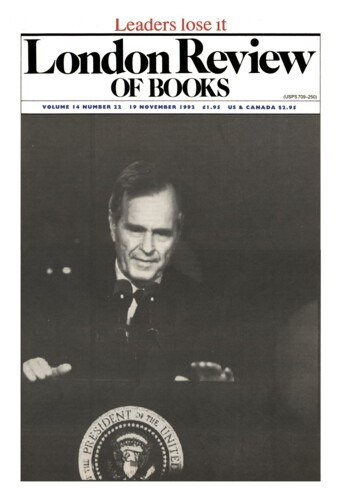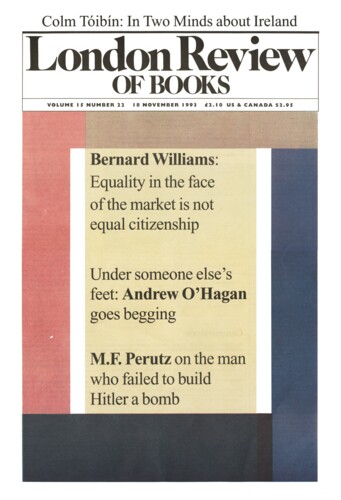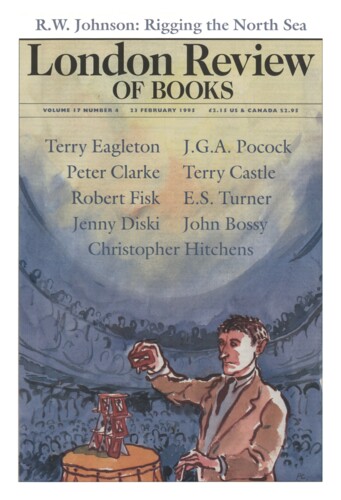Kill a Pig, roast a Prussian
Michael Burns, 19 November 1992
In this very short book about a very long murder Alain Corbin returns, as he puts it, ‘to the peasants of my youth (or at any rate to their traces in the archives)’. And he returns with new sensibilities shaped by new methodological tools. Listening to his rural actors with ‘a fresh ear’, he identifies the ‘alchemy’ of a violent event which, in the history of modern France, represents the ‘last outburst of peasant rage to result in murder’. The Village of Cannibals, like Robert Darnton’s Great Cat Massacre, confirms the degree to which social historians, building on the Annales tradition, have embraced cultural anthropology and the study of popular political language over time. Darnton calls it ‘history in the ethnographic vein’, and whether applied to a cock-fight, a cat-skinning or, as in Corbin’s case, to the gruesome killing of a provincial aristocrat, it is a history of blurred genres and deep backgrounds. The bestial mobs – as inscrutable as they were instinctive – of Taine, Zola and Le Bon have given way to crowds of contentious Frenchmen whose diverse cultures and ‘psychological mechanisms’ can be understood by the multi-disciplined modern researcher. By unravelling the violent actions of 16 August 1870, Corbin aims to analyse the peasantry’s ‘collective psychosis’.’



